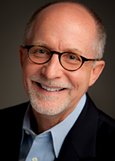EDITORIAL: A call for constructive citizenship
The approach of Election Day reminds me of a story from the late, great Baptist humorist and Grand Ole Opry star Jerry Clower. One night during a coon hunt, his friend John Eubanks wound up in the top of a sweetgum tree with a lynx. Amidst the racket of fighting the huge cat, John hollered down, “Shoot this thang!” His friends called back, saying they were afraid they might shoot him instead. And so John pleaded: “Well, shoot up here amongst us. One of us got to have some relief!”
|
|
After all the debates, sound bites, commercials, fact-checkers, yard signs and rallies, Americans are ready to vote Nov. 6 and get this election over with. Whatever the outcomes, we’ve “got to have some relief.”
More than any election cycle in memory, folks seem sick and tired of all the partisanship, pettiness and downright meanness. A historian recently told a news reporter our national political system is more polarized than it’s been in a century. That’s easy to believe, isn’t it?
The fact politicians, pundits and other partisans seem to forget is simple yet profound: When the sun comes up Nov. 7, we’ll all still be here. No matter how we voted, we’ll still be Americans, still be citizens. We’ll still face all the challenges that hover over us today. And we’ll meet them more powerfully and effectively if we can figure out how to transcend our divisions and work together constructively and positively.
We would do well to follow the advice offered by Founding Father Patrick Henry in is final speech: “Let us trust God and our better judgment to set us right hereafter. United we stand; divided we fall. Let us not split into factions, which must destroy that union upon which our existence hangs.”
 As a testimony to our faith that God created all people and loves all people equally, Christians should stand at the forefront of nonpartisan and bipartisan efforts to heal the divisive spirit that has infected our land. Following the teachings and example of Jesus, we must provide pathways for peace by turning the other cheek, offering forgiveness before it is requested, and demonstrating care and compassion to fellow Americans whose views differ from our own.
As a testimony to our faith that God created all people and loves all people equally, Christians should stand at the forefront of nonpartisan and bipartisan efforts to heal the divisive spirit that has infected our land. Following the teachings and example of Jesus, we must provide pathways for peace by turning the other cheek, offering forgiveness before it is requested, and demonstrating care and compassion to fellow Americans whose views differ from our own.
Beyond this, people of faith should lead in eliminating and/or correcting systemic flaws that promote political partisanship and advance vindictiveness. In a rough-and-tumble system, this is a delicate challenge, because we must preserve constitutional freedoms while also exerting the will of the majority, who are people of goodwill.
Steps we might affirm include:
• Move to nonpartisan, or blanket, primaries. This would provide all voters a greater voice selecting candidates. It would break the major parties’ stranglehold on nominations, which often leaves voters with choices between only the most extreme candidates.
• Require congressional districts be drawn by nonpartisan or bipartisan commissions. This could help eliminate the disturbing number of “safe” districts, which tend to protect extremely partisan lawmakers.
• Require chairmanships of congressional committees be based on seniority or objective merit, rather than strict party loyalty.
• Punish attack ads and untruthful ads. The Supreme Court has ruled corporations are “individuals” and political ads are protected speech. But what is legal need not be tolerated. If Americans stick together and vote against candidates whose ads demean and/or distort, the ads will stop.
These ideas may or may not be the best solutions for pulling the chain on destructive partisanship. But they can provide a starting point for serious discussion about how to begin the process. We enjoy the fruits of democracy, but today’s extreme politics threatens to rot from within. We must restore and reward the nonpartisan political quest for the common good. Patrick Henry was right: The longer we are divided, the closer we are to falling.
This is an issue for all Christians, because both Jesus and the Apostle Paul call us to constructive citizenship.
Marv Knox is editor of the Baptist Standard.